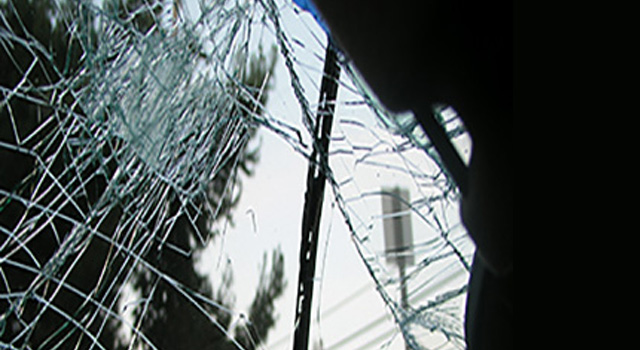The use of alternative venues and the creation of site specific works are exciting, recurrent features of the Edinburgh Festival Fringe. Fever Dream Theatre’s solo show Wrecked, is one of two shows that are taking place in cars this year, and although a car isn’t the smallest venue the Fringe has ever seen, with Wrecked, it is certainly one of the most successfully utilised.
Before stepping into it, the car feels somewhat menacing: a strange, claustrophobic, confrontational space in which to see a play. However, once the doors are slammed shut, it is clear that the reverse is actually true. The inside of a car is such a normal, well-known place, that it in fact feels very safe, and furthermore, it is a space, as today, where we often find ourselves confined with strangers: it feels very ordinary.
It is the creation of a feeling of both safety and ordinariness, that allows the close-up, intimate storytelling of Wrecked to be so effective. Written and directed by Jonathon Carr, the action begins immediately after the car has been crashed by its protagonist Sam (Kristy Bruce), and pieces together the long and short term history of how she came to find herself in this scary predicament.
The story is deftly crafted by Carr, and is formed from a series of Sam’s broken memories and a number of very effective, pre-recorded flashbacks. Its chilling climax is nicely concealed and the moments that lead to it are carefully paced for maximum impact. Kristy Bruce uses the small space very adeptly, and she conveys her memories in a natural, well-judged manner, carefully revealing Sam’s character in doing so. Given that she is often almost nose to nose with her audience, this is a real testament to her skill!
It would be tempting to go to town in a space such as this, to terrorise the audience or to overuse its novelty. Fever Dream Theatre’s approach is far more subtle, with carefully planted clues on the dashboard and side-pockets of the car almost subliminally enhancing our understanding of the play’s context, and the story allowed to unfurl itself naturally.
Ending such a naturalistic play can sometimes be awkward to do, but like everything in Wrecked, this is handled extremely well. It is only after the play has finished that the wave of its intensity truly breaks, and it seems strange simply to walk away from the other passengers, to whom one was never introduced, without properly acknowledging what we all experienced together.
